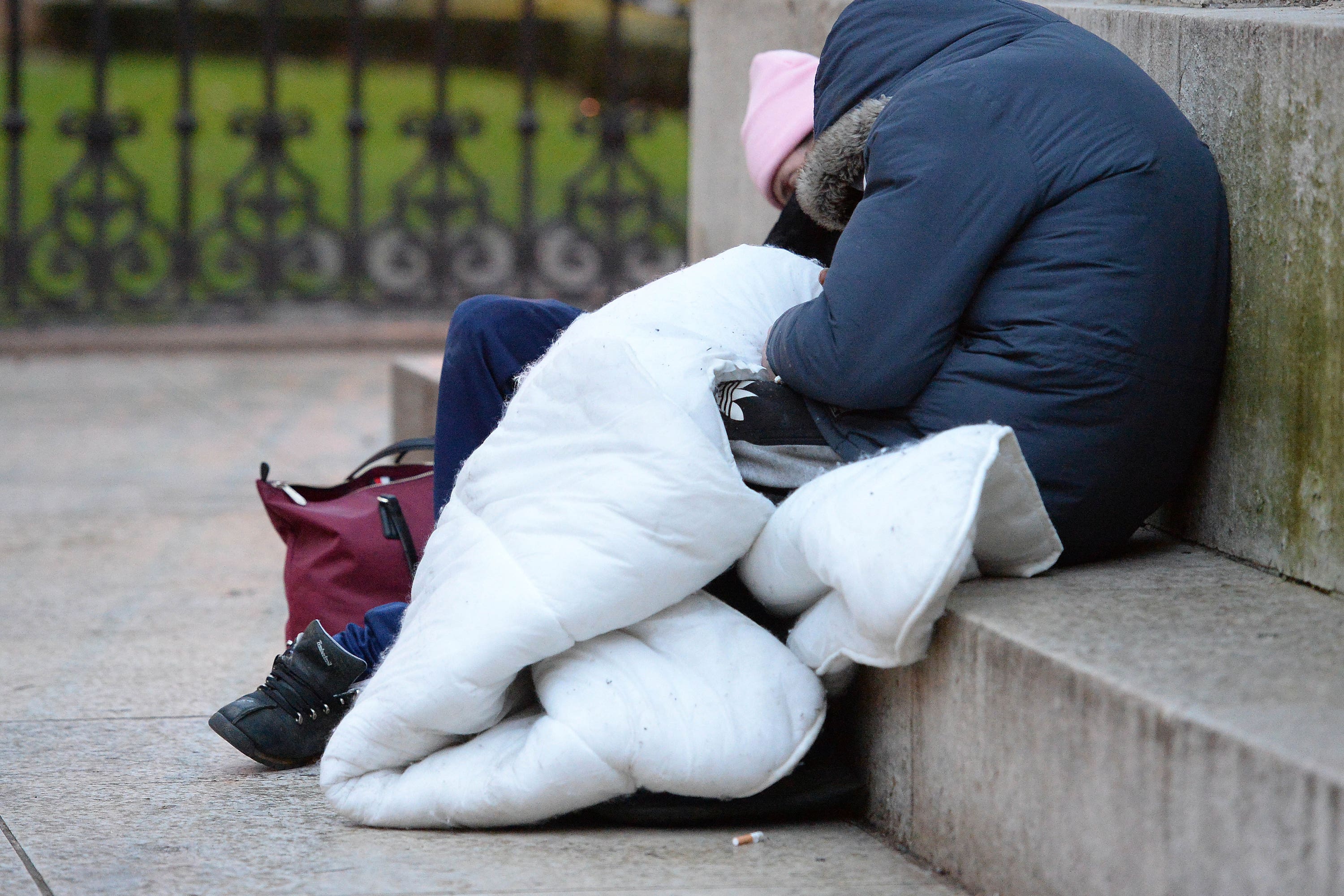Surge in number of people sleeping rough in England ‘a national shame’
There were 3,898 rough sleepers on a single night in autumn 2023.

The number of people sleeping rough in England rose by 27% in a year, with charities branding the statistics a “source of national shame”.
There were 3,898 rough sleepers on a single night in autumn 2023, up from 3,069 in 2022, according to the latest Government figures.
The 2023 total is more than double the 2010 figure when 1,768 rough sleepers were recorded.
Every region in England saw an increase in rough sleeping since 2022, with the largest rises recorded in Yorkshire and Humber (59%), the North West (49%) and the North East (46%), the data from the Department for Levelling Up, Housing and Communities (DLUHC) revealed.
Nearly half (46%) of those sleeping rough in England are in London and the South East.
Separate data also released by the DLUHC on Thursday, showed a total of 142,490 dependent children were living in temporary accommodation on September 30 and the number of households in temporary accommodation had increased by 10.3% since last year.
Matt Downie, chief executive of homelessness charity Crisis, said: “The scale of rough sleeping is now a source of national shame.
“It is a sign of extreme inequality and must prompt a rethink at the highest levels of Government.”
“To bring these numbers down, we urgently need the Westminster Government to put long-term funding into the proven solutions we know help people to leave the streets behind, such as Housing First.”
“But crucially, we also need to see a complete change in approach and a commitment to build the levels of social housing we need every year,” he added.
Fiona Colley, director of social change at homelessness services membership body Homeless Link, highlighted that sleeping rough is a “deeply traumatic experience” with severe mental and physical impacts.
“If a healthy society is judged by how it supports its most vulnerable citizens, then today’s statistics are truly shameful,” she said.
The figures come after the Government announced £220 million in funding earlier this week to help councils prevent families becoming homeless and bring rough sleepers in off the streets.
Housing charity Shelter blamed the spike in rough sleeping on the “ineffectiveness” of the Government as well as a lack of social homes and “record high” rents.
The charity called on all political parties to commit to ending the housing emergency through building 90,000 social homes per year with rents tied to local incomes.
Polly Neate, chief executive of Shelter, said the statistics proved the Government had been turning “a blind eye” to the housing emergency.
She said: “Far from ending rough sleeping, through its own ineffectiveness the Government has allowed it to more than double on their watch, while the number of children homeless in temporary accommodation hits yet another shameful high.”
“We haven’t built enough social homes in decades, and with rents at a record high, thousands of people are being forced to spend their nights freezing on street corners.
“Meanwhile families are being pushed into grim hostels and B&Bs miles away from their support networks and where children have to share beds.”
“Ignoring a crisis of this magnitude cannot continue,” she added.
The Government says it is spending an “unprecedented” £2.4 billion to help rough sleepers and those at risk of homelessness.
A Department for Levelling Up, Housing and Communities spokesperson said: “Whilst we have made good progress and rough sleeping remains below pre-pandemic levels, there is more work to be done to meet our ambition to end it entirely and we will continue to work with local authorities to help people off the streets for good.
“Temporary accommodation is a vital safety net to make sure families are not left without a roof over their heads, but councils must make sure it is suitable for families.”
An expert group last year predicted the Government will not meet its target to end rough sleeping by the end of this Parliament, which was a 2019 manifesto commitment.
Bookmark popover
Removed from bookmarks